🍃 Reciprocity: the interview
6 questions for Jane Pike
Nature writer, n. A person who delights in paying attention, being astonished, and telling about it.1
“I think to feel small is one of the delights. We should regularly strive to be small next to the vastness of the universe. It puts us back in right relationship with the world. We get to de-centre our humanness for a moment, which is always a relief. To be just another animal body, here with all the others, doing the best we can.” ~ Jane Pike
Welcome to Season 2 of the Reciprocity interviews. My inbox is full of treasure in the form of lovingly observed writing about place, encounters both wild and gentle, imaginative kinship and renewed reciprocity. These thoughtful, talented writers kindled in me the desire to learn more about them.
Today’s guest, Jane Pike is an artist, writer, and creative mentor whose work blends creativity, somatic practice, and ecological awareness. She helps people move from creative curiosity to the habit of art, exploring how body, nervous system, and imagination connect us to ourselves, each other, and the wider world. You can learn more about her work at janepike.com.
I first encountered Jane’s luminous writing in early summer 2024, and featured her piece, “of the time when animals were still people,” in the first edition of NatureStack journal.2 The title pulled me in, but the subtitle spun me round: “of the time when the land named herself after the movement of the hawks.” Her audio narration is the perfect accompaniment to a wild encounter—just the sort of nature writing I crave (and aspire to).
“The forest knows grief, she tells me, but here we call her something different.
In the forest, we refer to her as reverence.”3
Creating Wild is a mix of illustrated field notes, kitchen-table conversations, and creative trail maps. It’s a space for exploring the relationship between creativity, the body, and the natural world—and for finding companionship in the often-messy, always-wild process of making and creating.
Why are you drawn to nature writing?
I think of creativity generally as our response to life moving through us. Our relationship with place then naturally becomes intimately entwined with that process; it’s impossible to separate us out. We are ingesting, digesting, making sense of ourselves in relationship to our surroundings. Creating and making then becomes a way we can offer something of ourselves back.
For me, I live in an out-of-the-way place, at the foothills of a mountain, at the very edge of the Pacific in Aotearoa New Zealand. The literal ground I stand on, and my desire to uplift and protect it, underpins everything I do. We are co-conspirators and collaborators in the creative process— I absolutely believe and feel that to be true.
I used to worry that my work was too whimsy or poetic at times; that I couldn’t relate to stories of the big city and some of the realities that came with living there. But then something shifted when I was walking around Portland in the US, a place that I was visiting at the time and one that is so different to my own, and it all made sense to me.
My stories, my words are rooted in the land I call home, just as others are rooted in theirs.
We are all of the same network, all valuable in different ways.
We can only ever speak to the reality that is ours— truthfully, bravely, lovingly.
To have had the good fortune to land in a place of trees and lakes and birds, I feel the fortunate responsibility to advocate for it, and that takes the shape of art and writing.
How does writing about nature affect you, in your work or personal life?
It’s funny because even considering this question implies a separation. I don’t really think about writing nature as something I set out to do; it’s just what occupies my heart, my thoughts, my emotions.
In some ways, I find both writing and reading about nature challenging. It’s peculiar to me that we have to somehow position the beauty that remains in this world forward; that we understand the need to craft words in a way that will make people care.
So when I speak of it being challenging, to speak truthfully of nature means holding a strange paradox; to be just joyful enough to sustain attention and a sense of possibility, and to be truthful enough to motivate action within creating hopelessness.
I still find it bewildering that we have to stand up for “the natural world”. That it isn’t enough for a politician, a person to stand outside and see it for themselves. That the natural response isn’t, let’s move heaven and earth to make sure we do what we need to do to make it all ok. To facilitate mutual flourishing.
There are people who do this exquisitely, who craft words to this end. I believe creativity is a portal for care and wonder, and so I often enter via that route. We have to literally and metaphorically be creative about opening ourselves and others back up.
While outside, have you ever experienced feeling small, lost or in danger?
All of the above! I think to feel small is one of the delights. We should regularly strive to be small next to the vastness of the universe. It puts us back in right relationship with the world. We get to de-centre our humanness for a moment, which is always a relief. To be just another animal body, here with all the others, doing the best we can.
As for lost and in danger, absolutely. But I sometimes wonder, at what point we decided that we had to remove all feelings of discomfort in order to understand ourselves as being ok?
That as humans, we are entitled to a life of ease and comfort that sits separately to what the rest of the animal world experiences?
I have mused if there’s a normal level of doubt, of anxiety, of even fear that as humans— as a human who is vital, connected, and alive — we are supposed to experience.
And in our domesticated lives, we have convinced ourselves of this idea of being able to find neutral, or that much of our state of being should be one of relaxation and rest?
That’s certainly not the case for any other creature on the planet. Maybe we all need to get lost more often!
What’s a favorite memory of nature from your childhood?
I grew up in Australia, although I’ve lived in Aotearoa New Zealand for all of my adult life.
My main memories of nature are sensory; lying against hot ground. The smell of crushed eucalyptus leaves amongst your fingers. The sound of Kookaburras singing, of Magpies in the morning. Hiding behind massive logs in the middle of a 50-acre paddock and watching the red and grey Kangaroos all congregate at dusk. Going spotlighting for possums, marveling at them up in the trees. Galloping my horse up long, steep hills and shrieking with laughter, and feeling so much love for my horse in that moment I’d unsure if it was be possible to continue. Surely a human would explode with all that love. I carry all of that me.
What do hope for, for your writing?
In the first instance, I hope it inspires people either to begin or return to creative practice. I believe that creativity is a portal for wonder, and what we wonder about we care for, and there are so many things in the world that need our advocacy and protection.
Beyond that, my personal mission is to write in a way that inspires a more intimate and connected relationship with the birdlife of Aotearoa New Zealand; to motivate, educate and move. New Zealand, incredibly, evolved with no native predatory mammals, so our birdlife is predominantly ground dwelling.
Introduced species have accelerated us to the top of an unenviable list; we have one of the fastest growing endangered or extinct species lists in the world.
My birds here are my greatest natural allies. If my voice can be useful to them in some way, I will happily use it.
A writer or other creative artist who makes you hopeful for humanity and the earth.
Janisse Ray. She is such a light. I’m so fortunate to be able to call her my friend and mentor. What a beam of bravery and love she is.
Ray Ching. He is a New Zealand bird artist whose drawings and words never cease to move me.4
But you know, I am so lucky. I am surrounded by friends and people I work with who send such beauty into the world. When I feel despairing, I just have to look at them and remind myself, we don’t have room for despair. There’s no time for it.
People love and people care and we have to keep on looking for those people.
Each season, we donate 30% of paid subscriptions to a worthy environmental cause. This season, it’s Indigenous Climate Action. They envision a world with sovereign and thriving Indigenous Peoples and cultures leading climate justice for all. Track past and current recipients here.
What did you enjoy most about this interview? I’d love to hear from you. Or share it with others by restacking on Notes, via the Substack app. Thanks!
Notes and links
If you’d like to participate in this interview series, please DM me on chat, or reach out via email: gabrielli-dot-julie-at-gmail. Find previous interviews here.
For more inspired nature writing and artwork from the best of Substack, check out the articles in our final edition of NatureStack journal.
In further service to Substack’s nature writers, Wildheart curates this lovely directory of nature-focused writers:
thanks, Mary Oliver
Treat yourself by reading the full post here.
View a sampling of his artwork on this website.




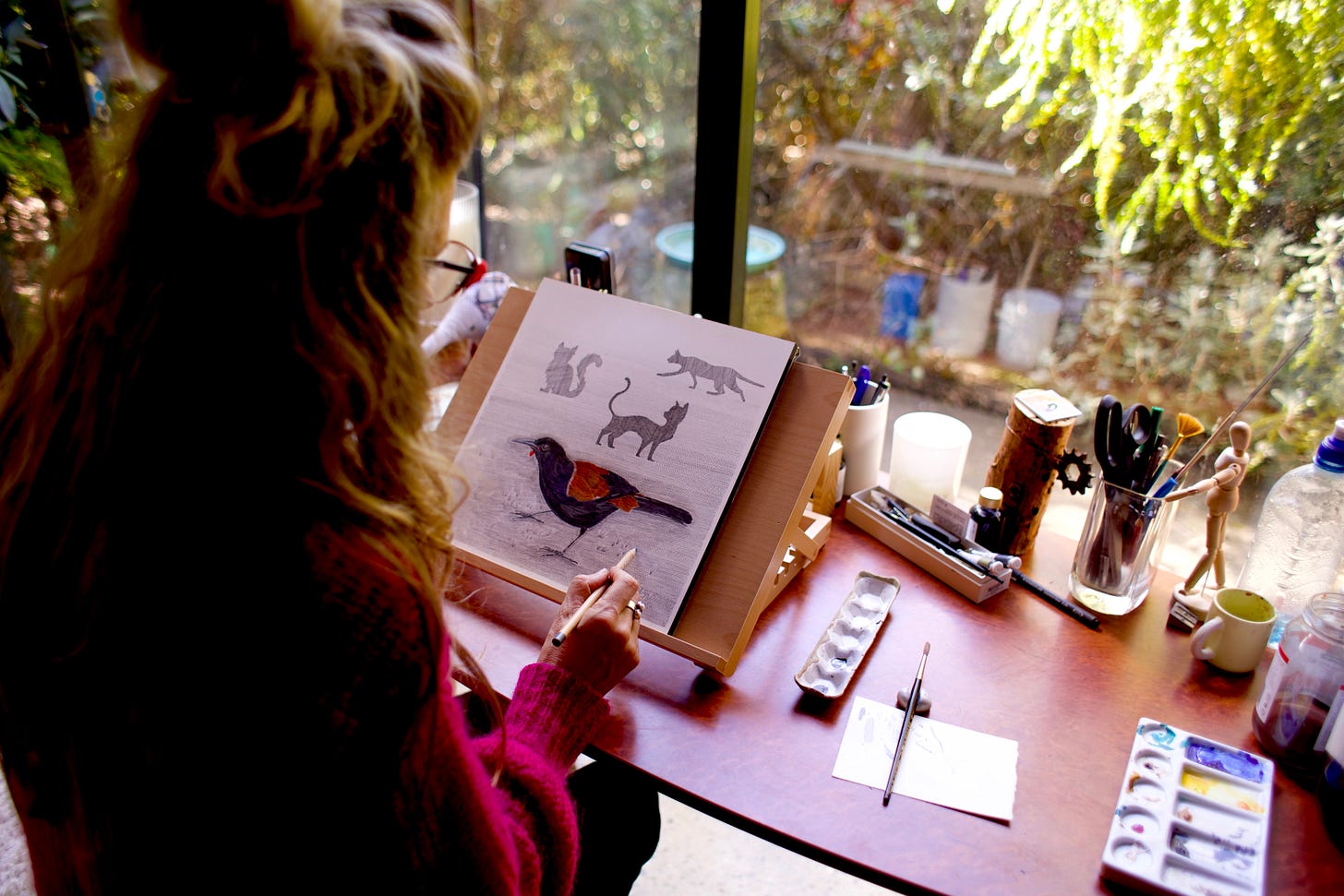
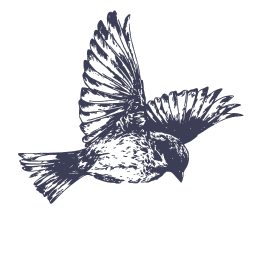
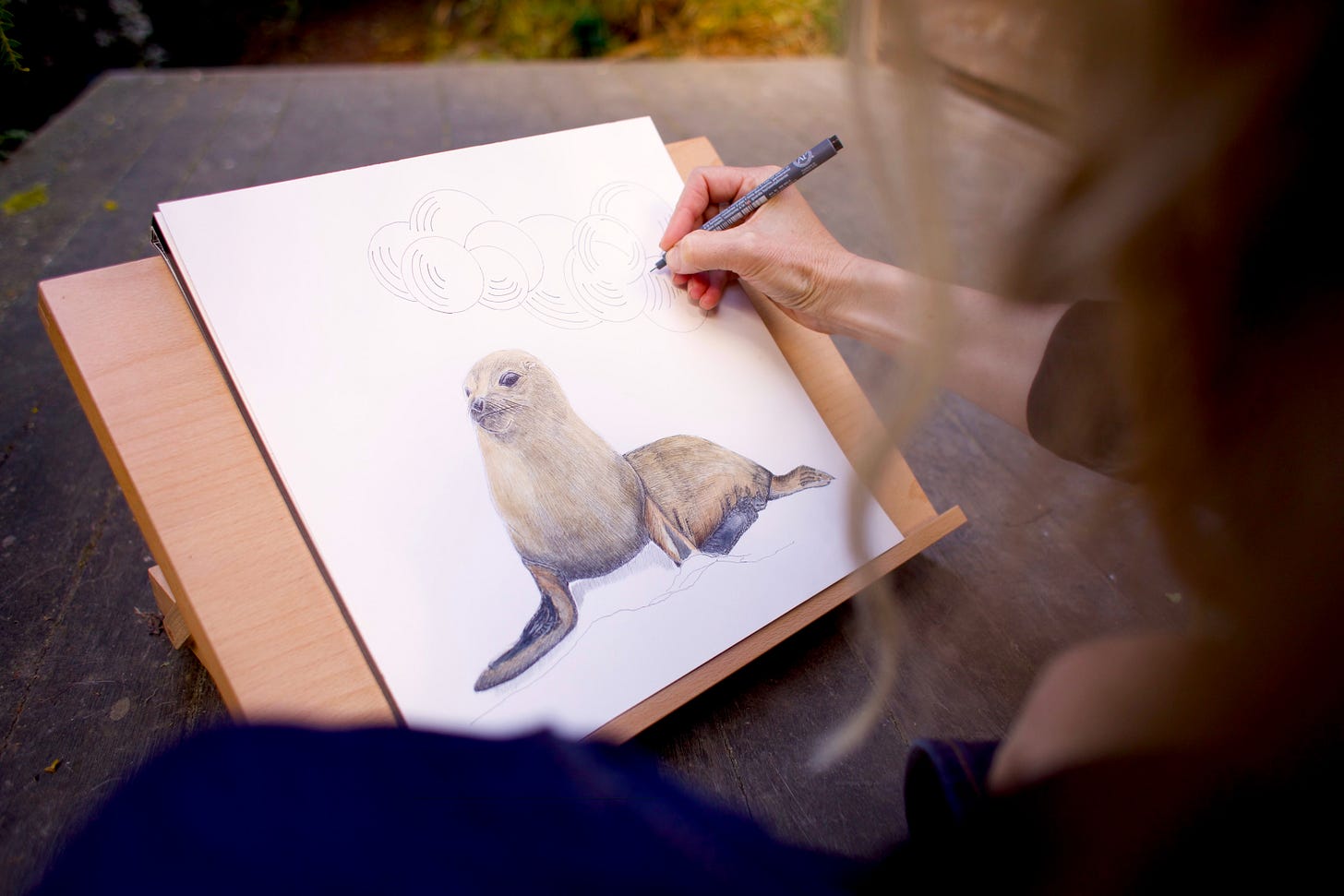
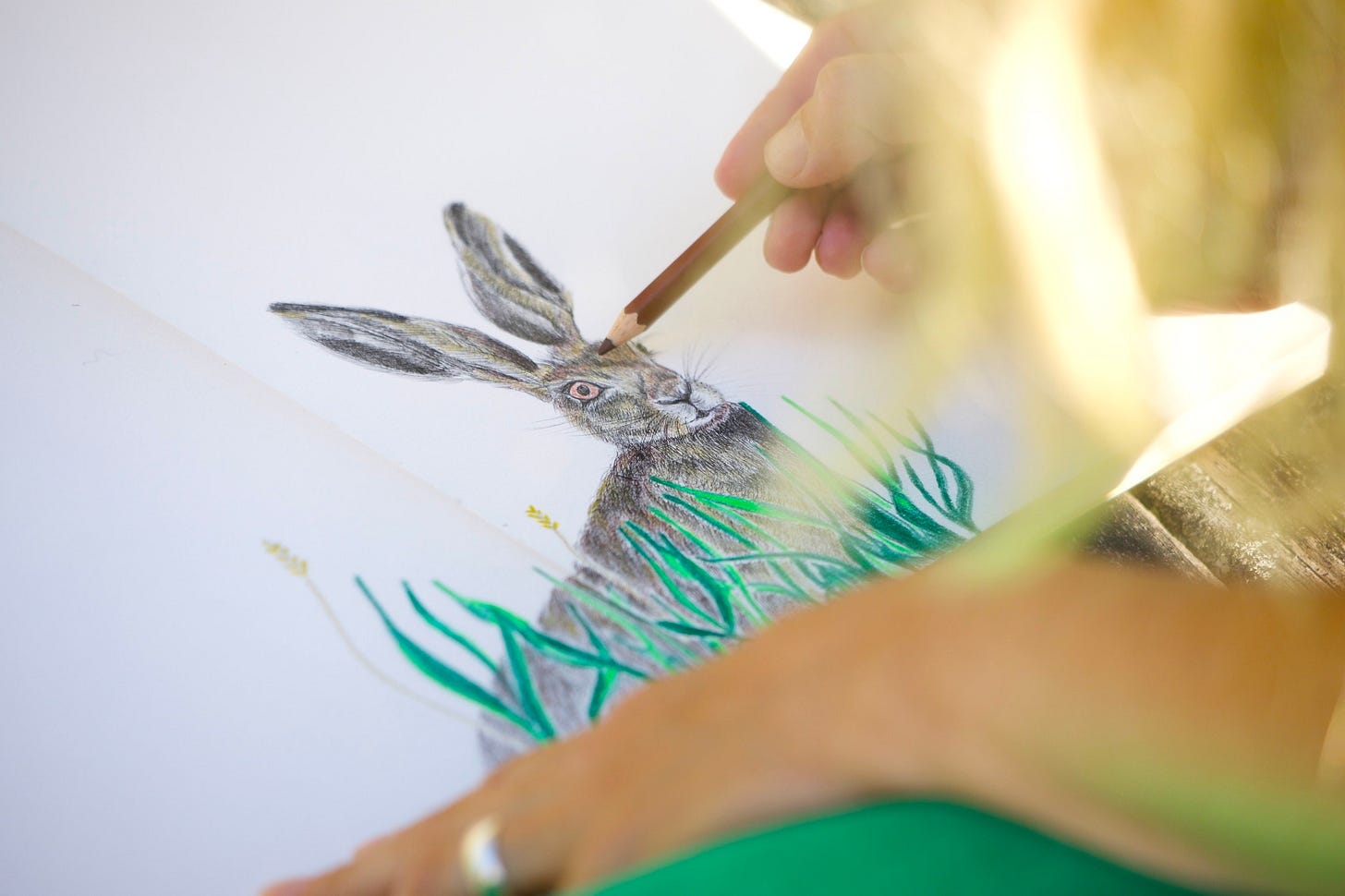
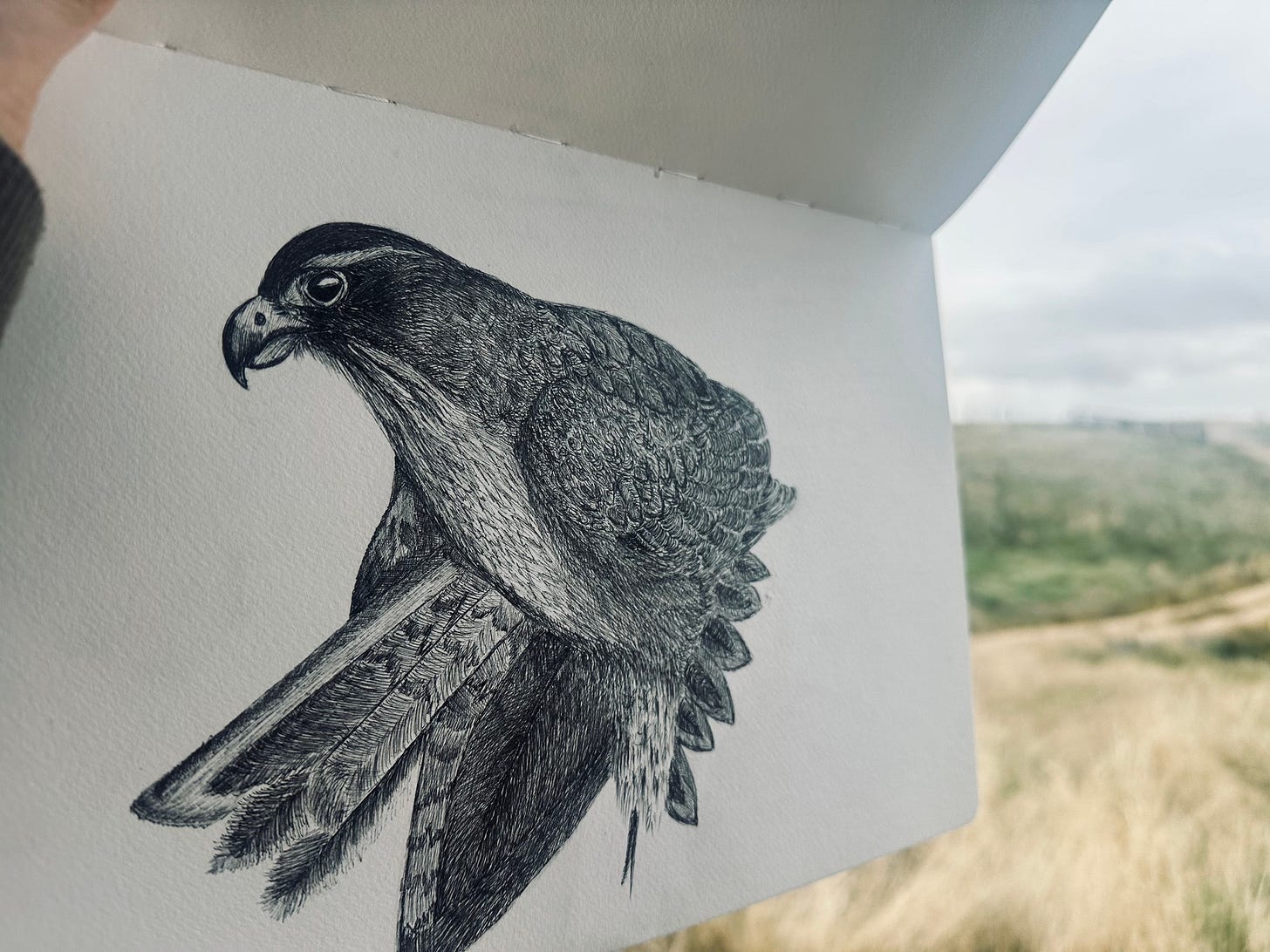
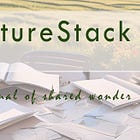


What a wonderful article! This is the first time I've seen a perspective that presents how feeling "small" can be liberating, not a bad thing. I like this perspective and I'm thinking of applying it to my way of thinking. It's much more motivating.
Beautiful interview💜